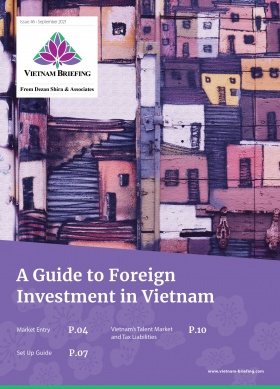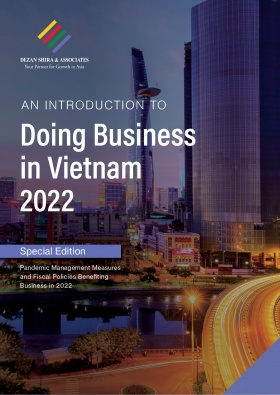Vietnam Increases Overtime Hours Until Year End
Vietnam’s National Assembly passed a Resolution on March 23 to increase overtime working hours from the current 40 hours to 60 hours a month. However, the total number of overtime working hours cannot exceed 300 hours annually.
The new regulations were released in Resolution 17/2022/UBTVQH15 (Resolution 17) which will take effect from April 1 until December 31, 2022. The development follows the proposal by the Ministry of Labor, Invalids and Social Affairs (MoLISA) to increase the overtime cap, due to insufficient labor at production sites and as businesses and the country attempt to recover the economy from the pandemic.
There are two reasons for this:
- Shortage of labor due to employees calling in sick due to being infected by COVID-19; and
- Those not returning to work after going back to their hometowns when pandemic restrictions were lifted across the country.
Mai Quoc Hung, Associate for Dezan Shira & Associates, HR and Payroll, Ho Chi Minh City office notes that this is a positive development for employers and employees in the short term, particularly in the manufacturing sector, however, there are risks involved if employees are overworked.
Nevertheless, employers are required to acquire consent from employees before allowing them to work overtime.
Employers should also bear in mind that those not eligible to work overtime include:
- Those under 18 years of age (specifically between 15 to under 18 years);
- Workers with disabilities;
- Employees doing heavy, hazardous, toxic, or dangerous jobs;
- Pregnant women at six or seven months or more; and
- Mothers raising kids less than 12 months old.
Businesses have complained that since the pandemic, labor shortages have increased significantly. Some businesses that had more than 1,000 employees before the pandemic now have around 500 and have thus resorted to temporary solutions to maintain production.
While Resolution 17 will help businesses and employees in the short term, the government and employers will have to come up with efficient long-term strategies to meet demand. This will take a while, as businesses and employees re-adjust to post-pandemic recovery and as Vietnam’s economy steadily expands.
To stay competitive businesses will need to offer incentives, such as additional meal and fuel allowances (as fuel prices have risen drastically), daily stipends, additional benefits such as paid travel, supplemental health insurance, family-focused benefit packages, and continuing education to develop skills among others.
In the past decade, the annual overtime cap has increased by approximately 50 percent to meet demand.
About Us
Vietnam Briefing is produced by Dezan Shira & Associates. The firm assists foreign investors throughout Asia from offices across the world, including in Hanoi, Ho Chi Minh City, and Da Nang. Readers may write to vietnam@dezshira.com for more support on doing business in Vietnam.
We also maintain offices or have alliance partners assisting foreign investors in Indonesia, India, Singapore, The Philippines, Malaysia, Thailand, Italy, Germany, and the United States, in addition to practices in Bangladesh and Russia.
- Previous Article Green Buildings in Vietnam: How Sustainable Are They?
- Next Article Key Considerations When Choosing an Industrial Zone in Vietnam





























